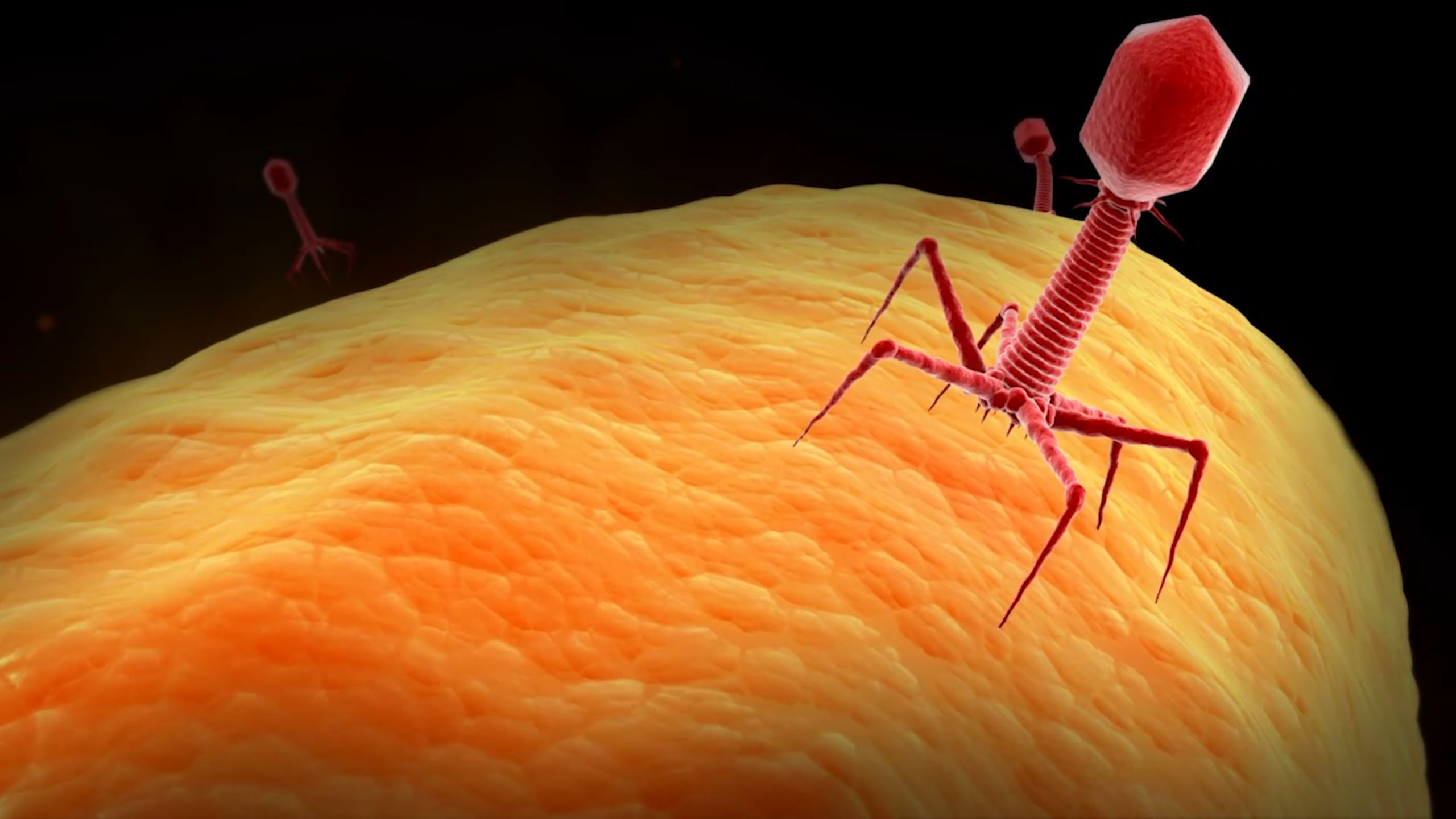Antimicrobial Biotechnology
Bacteriophages as an alternative to antibiotics

Increasing antibiotic resistance is a global health problem that is exacerbated by the overuse and inappropriate use of antibiotics. Bacteria are developing mechanisms to build resistance to these drugs, which impairs the effectiveness of conventional antibiotics. This leads to serious and difficult-to-treat bacterial infections, increased healthcare costs and a growing threat to public health. In addition to optimizing the use of antibiotics, there is a need to develop new classes of antibiotics and other antibacterial strategies.
Bacteriophages are an effective alternative for combating antibiotic-resistant bacteria.
These are viruses that infect and kill bacteria extremely specifically. Bacteriophages are almost ubiquitous in nature and play an essential role in the regulation of bacterial populations.
Phages consist of a nucleic acid core, either DNA or RNA, and surrounding coat proteins. They infect the bacterial cell by attaching to its surface and injecting their genome into the host cell. Within the bacterium, the bacteriophages multiply and produce enzymes that weaken the bacterial cell wall and finally destroy (lyse) the bacteria, releasing the newly formed phages to infect new bacteria.
Specificity and effectiveness make bacteriophages a potent alternative for the treatment of severe infections with antibiotic-resistant bacteria. At the Fraunhofer IZI, bacteriophages are systematically collected and examined for their medical potential. To this end, phages are isolated and characterized from a wide variety of environmental samples. In addition to the complete sequencing of the phage genome, it is examined, in particular, for resistance genes and potential virulence factors. The aim is to build a comprehensive therapeutic phage library, which will serve as a basis for the research and development of phage-based therapeutics.